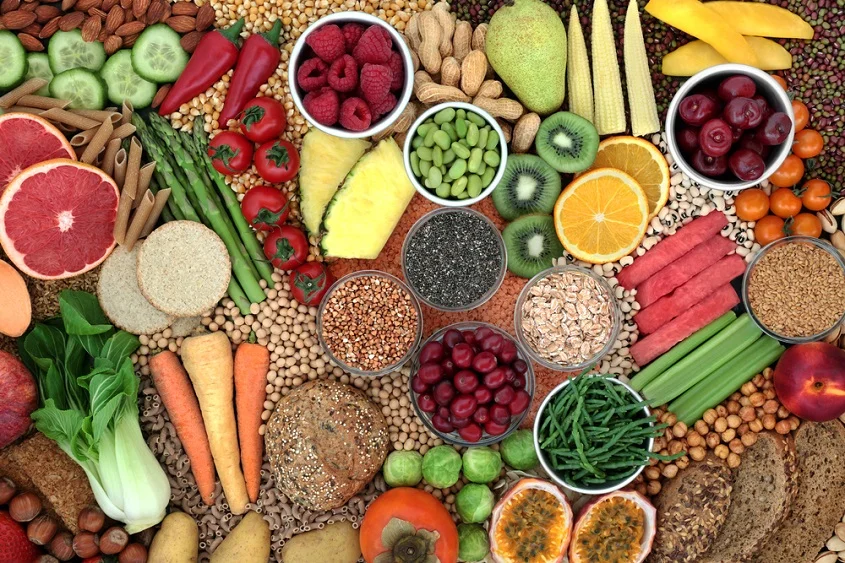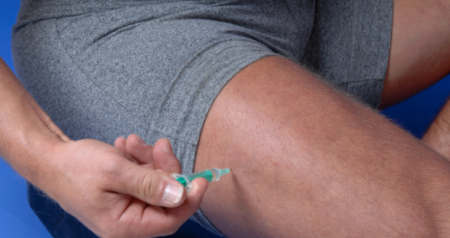Achieving an even skin glow and maintaining skin elasticity is not solely a matter of external skincare products; it’s deeply rooted in what we consume. In this article, we will explore the essential dietary components that play a pivotal role in enhancing the health and appearance of your skin.
From the power of antioxidants to the magic of healthy fats, we’ll uncover how specific nutrients can boost your skin’s elasticity and give you that desired luminous complexion. Get ready to embark on a flavorful journey that will not only satisfy your palate but also transform your skin from the inside out.
Difference between Young and Mature Skin
The journey of our skin from youth to maturity is fascinating and complex, marked by distinct changes that affect its appearance and needs. Young skin and mature skin differ in several key ways, each requiring specific care and attention.
Texture and Elasticity: One of the most noticeable differences is in texture and elasticity. Young skin typically boasts a smooth texture and high elasticity, thanks to abundant collagen and elastin. These proteins keep the skin firm and supple, allowing it to bounce back easily. In contrast, mature skin experiences a decrease in collagen and elastin production, leading to a loss of firmness and the appearance of fine lines and wrinkles. The skin may feel thinner and less resilient, requiring products that help to boost collagen production and improve elasticity.
Moisture Levels: Young skin generally has a balanced moisture level, maintaining a natural glow and even tone with minimal effort. However, as skin matures, it tends to become drier due to decreased natural oil production. This dryness can lead to a dull complexion and make fine lines more noticeable. Mature skin benefits from richer, more hydrating skincare products that help to lock in moisture and restore a healthy barrier function.
Sensitivity and Healing: Young skin typically has a higher tolerance to external factors and recovers quickly from damage. Mature skin, on the other hand, becomes more sensitive over time. It is more prone to irritation and may take longer to heal from injuries or inflammation. As a result, gentle, non-irritating products and protective measures like sunscreen become even more important.
Pigmentation: While young skin generally has uniform pigmentation, mature skin may develop age spots or areas of uneven pigmentation due to years of sun exposure and environmental damage. This calls for targeted treatments that focus on evening out skin tone and protecting against further damage.
Recognizing these differences is crucial in caring for your skin at every stage of life. For young skin, the focus is often on maintenance and protection, while mature skin requires more targeted treatments that address specific concerns like dryness, loss of elasticity, and uneven pigmentation.

Nutritious Diet for Even Skin Glow
Embarking on the journey to achieve an even skin glow starts from within, specifically with a nutritious diet that caters to the health of your skin. A balanced diet, rich in specific nutrients, can significantly enhance your skin’s natural radiance and evenness.
Antioxidants: The cornerstone of a skin-friendly diet is antioxidants. Foods rich in antioxidants combat free radicals – unstable molecules that can damage skin cells and lead to premature aging. Berries, dark chocolate, pecans, artichokes, and kidney beans are some excellent sources. They help in reducing inflammation and protect the skin from environmental damage, promoting an even skin tone.
Healthy Fats: Don’t shy away from healthy fats. Omega-3 and Omega-6 fatty acids, found in foods like salmon, avocados, and walnuts, are essential for maintaining the skin’s lipid barrier. This helps in keeping the skin hydrated, plump, and glowing. These fats also have anti-inflammatory properties, which can help in reducing redness and unevenness in skin tone.
Vitamins: Vitamins play a pivotal role as well. Vitamin C, found abundantly in citrus fruits, strawberries, and bell peppers, supports collagen production, enhancing skin’s firmness and glow. Vitamin E, present in almonds and sunflower seeds, aids in skin repair and protection.
Hydration: Hydration is another key factor. Drinking plenty of water throughout the day helps flush out toxins and keeps the skin cells plump, which makes the skin look more luminous and even-toned. Foods with high water content like cucumbers, tomatoes, and watermelon also contribute to overall hydration.
Probiotics: Incorporate probiotics, like yogurt, kefir, or fermented foods, which maintain gut health. A healthy gut can influence the appearance of your skin, promoting a smoother, more even complexion.
Incorporating these dietary elements not only benefits your overall health but also plays a significant role in achieving that coveted even skin glow. Remember, while topical skincare products are important, they can only do so much. Nourishing your body with the right foods provides the foundation for healthy, radiant skin from the inside out.

Final Thoughts
In conclusion, achieving an even skin glow is a holistic process that extends beyond topical treatments, deeply rooted in the foods we consume. Embracing a diet rich in antioxidants, healthy fats, essential vitamins, ample hydration, and beneficial probiotics is crucial for nurturing skin health. These nutritional components work synergistically to enhance the skin’s natural radiance, firmness, and evenness.
By incorporating these nutrient-rich foods into your daily diet, you not only boost your overall health but also provide your skin with the essential building blocks it needs to glow from within. Remember, the path to radiant skin is a journey that involves consistent care and mindful nutrition. So, embrace this wholesome approach to skincare, and watch as your skin transforms, reflecting the nourishment and care you provide it, revealing a naturally even and luminous glow.






